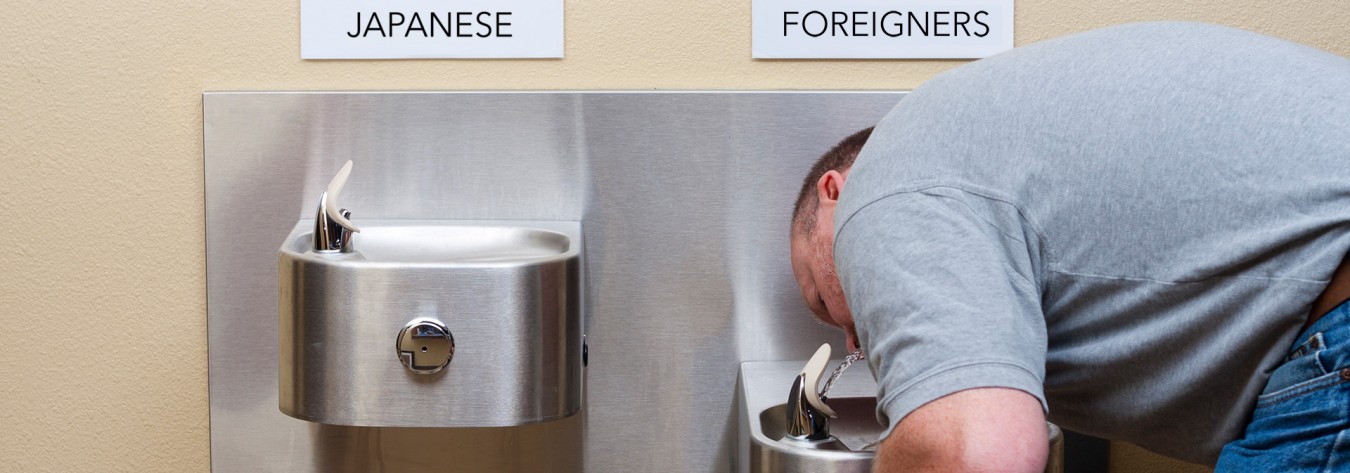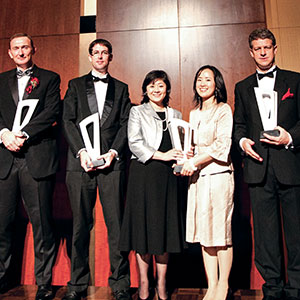The question of whether or not Japan can ever embrace immigration on a large scale has long been a hot topic of discussion.
Given the country’s changing demographics—an ageing population, declining birth rate and a shrinking tax base—several experts have argued that allowing more qualified immigrants into the country (for example in the areas of software development and healthcare) is a sound policy.
Even the nationalist-leaning Prime Minister Shinzo Abe has hinted that this might be a way forward and form part of his “third arrow” approach to restoring the country’s economic wellbeing.
So, it was with considerable dismay that I came across a recent column in the daily Sankei Shimbun proposing that Japan adopt nothing short of an apartheid approach to internationalisation.
The author, Ayako Sono, who reportedly (and worryingly) advised the government as a member of an education reform panel in 2013, wrote that she believes “whites, Asians and blacks should live separately”.
She came to this conclusion, she announces unashamedly, after considering the situation in South Africa “20 or 30 years ago”. Where has this disgraceful woman—who was educated in a Catholic school—been living during the decades in which South Africa showed us Nelson Mandela’s extraordinary ability to forgive the most appalling injustices?
Why has her Catholic-school education not equipped her to understand the enormity of what segregation means (demonstrated not just in South Africa but in the US, too) and where, pray, is her Christian sense of moral right?
I find her conclusions and comments insulting at the most deeply personal level and I protest against them most strongly. She would, of course—assuming that she had the time, courage or inclination to even consider my view—argue that I am a mere Caucasian foreigner who ought—in her jaundiced opinion—to be segregated to live in a “whites” only colony.
What though, that my life partner is Japanese? But, I have lived in this country for almost 40 years. I pay my taxes; have done for all those years and, unlike many of the people Sono purports to “advise”, I do not cheat—and have never cheated—on those taxes. Nor have I had dealings with allegedly dubious organisations such as the Sasakawa Foundation, which Sono headed for some years.
On the other hand, I do celebrate the fact that in my life here in Tokyo I have friends of many races, faiths, skin colours and genders. I rejoice in it.
When I read of the racial and religious discord that is blighting Europe and the US now, I feel so blessed: I know I can go out tomorrow and get a great hug from my African-American friends, share a meal with my Muslim friends and visit a Jewish community centre and know I will be warmly greeted.
And all around me, my Japanese neighbours greet me without hesitation, their children calling me “uncle”. This is what I consider to be inclusion in the community and surely this is what we all need as human beings.
I do not know (and, frankly, do not wish to know) Sono, so I cannot guess her motives for making such an outrageous and offensive proposal at this time, especially when Japan is debating the question of “hate speech”.
But Japan is not the country it once was. It cannot afford to be seen as arrogant and exclusive. It is in the run up to the Tokyo 2020 Olympic and Paralympic Games.
Abe and his government need to sit up and take note: to recognise Sono’s racist views—to give them any credibility at all or to even give them exposure—should risk the chance of having the Games taken away. What she espouses is entirely contrary to what the Olympian spirit embraces.
The administration would do well to distance itself as quickly and as publicly as possible from her, and the Japanese media should at the very least question her distasteful opinions.







